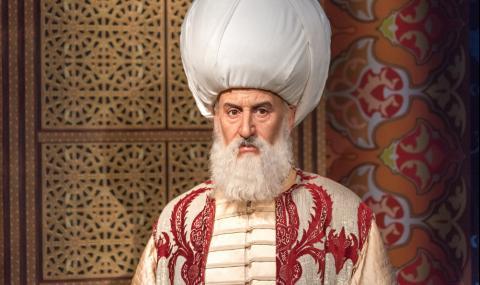On September 30, 1520, Suleiman I becomes Sultan. He succeeds succeeds Selim I on the throne. Sultan Suleiman I remains in history as Suleiman the Magnificent or Suleiman the Lawgiver.
Süleyman I was the 10th and longest reigning Sultan of the Ottoman Empire - from 1520 to 1566. He succeeded his father Selim I on the throne, and he himself was succeeded by his son Selim II.
During his reign, his empire stretched from Central Europe to China and from the Pillars of Hercules to the Indian Ocean.
The peremptory law of the empire is the Sharia (sacred law) which, as the divine law of Islam, is beyond the sultan's power to change. This did not prevent Süleyman the Magnificent from creating the first legal code of the Ottoman Empire, with which an attempt was made to unify the work of the court and the administration.
It is known as “Ottoman Laws” and lasted for the next more than 3 centuries. His tax reform predetermined the development of the empire for centuries to come. The Sultan is also considered the father of criminal law in the empire, which breaks with some Sharia norms.
In addition to having military successes, the Sultan also carried out an educational reform that supported the opening of schools to the mosques and thus ensured the vitality of the empire in the following centuries.
While to the rest of the world he appears dangerous, within the empire he has a reputation as a just ruler who fights corruption.
Through his personal patronage, Süleyman ushered in the Golden Age of the Ottoman Empire, which represented the pinnacle of Ottoman Turks' cultural achievements in architecture, literature, art, theology and philosophy.
Under his rule, the Ottoman Empire reached its greatest heyday in terms of territory and economic power. The reforms carried out by the Sultan guaranteed the preservation of the empire in the following centuries.
